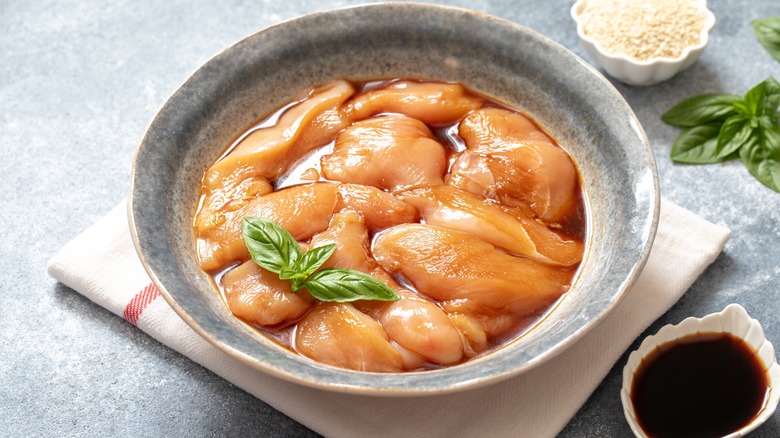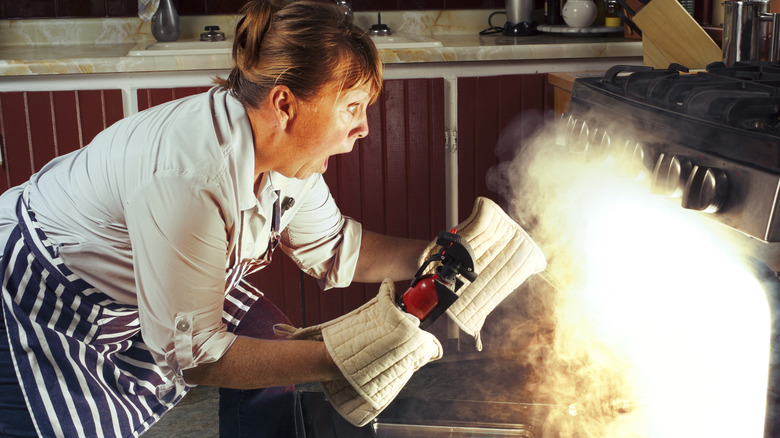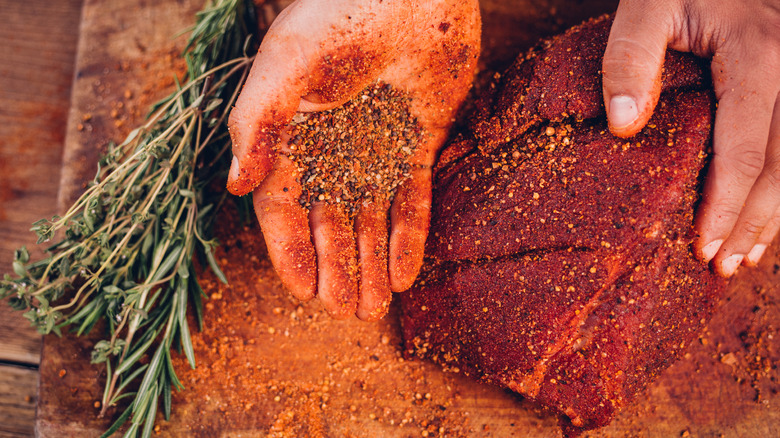The Reason You Should Never Use A Marinade When Broiling Meat
The broiler is a great option for fast cooking under high heat, especially with meats, such as steak, scallops, and fish. It's a somewhat hands-on method that requires close observation to ensure nothing gets charred or burnt, but it can yield delicious results: crisping up the skin on proteins, causing cheesy toppings to bubble, and getting that last little bit of golden-brown color on veggies. However, one thing you should avoid when cooking with the broiler, especially meat, is marinating. It might seem counterproductive to avoid marinating meat for the broiler, but it's not because of flavor — it's because of safety.
Marinades often contain oil or sugary ingredients that may cause flare-ups during cooking, especially as the hot meat bubbles and spits. To avoid the marinade mistake of sparking an oven fire, only use a light amount of marinade, and mind your ingredients (or blot the excess prior to cooking).
How oven fires start
Oven fires are always a kitchen risk, but some activities can be more dangerous than others. One of the main reasons oven fires start is that fat or grease comes in contact with the source of heat and flares up. If enough grease hits the heat source, the flames could become large enough to catch the rest of the oven on fire (or at the very least, begin to smoke considerably).
With a broiler, the meat is typically only a few inches below the heat source, whether it's a gas or electric broiler. So any "spitting" that occurs from the meat's fat or from the excess marinade heating up can easily jump up and interact with the heat. This can lead to big problems, even in a short amount of time, as the fat burns.
Making sure meat is patted as dry as possible before broiling can help avoid disaster.
No marinade? No problem!
Worried about imparting big flavor without a marinade? Use herbs and spices instead. Coating meat with a spice blend or encrusting it with fresh or dried herbs can pack in plenty of flavor without the threat of oven flare-ups.
Be sure to watch the meat as it cooks — dried and fresh herbs and spices can burn, too, especially when cooking close to a heat source. If you're not going for that charred spice flavor, remember to turn the meat regularly to avoid burning the exterior and ending up with something bitter.
Prefer to add flavor after the meat is finished cooking? A good sauce can also impart plenty of deliciousness after the broiling is done. Try a fresh, herby chimichurri sauce for steak, a tangy barbecue sauce for chicken, or a teriyaki glaze for salmon. You can easily whip it up as the meat rests post-broil.


